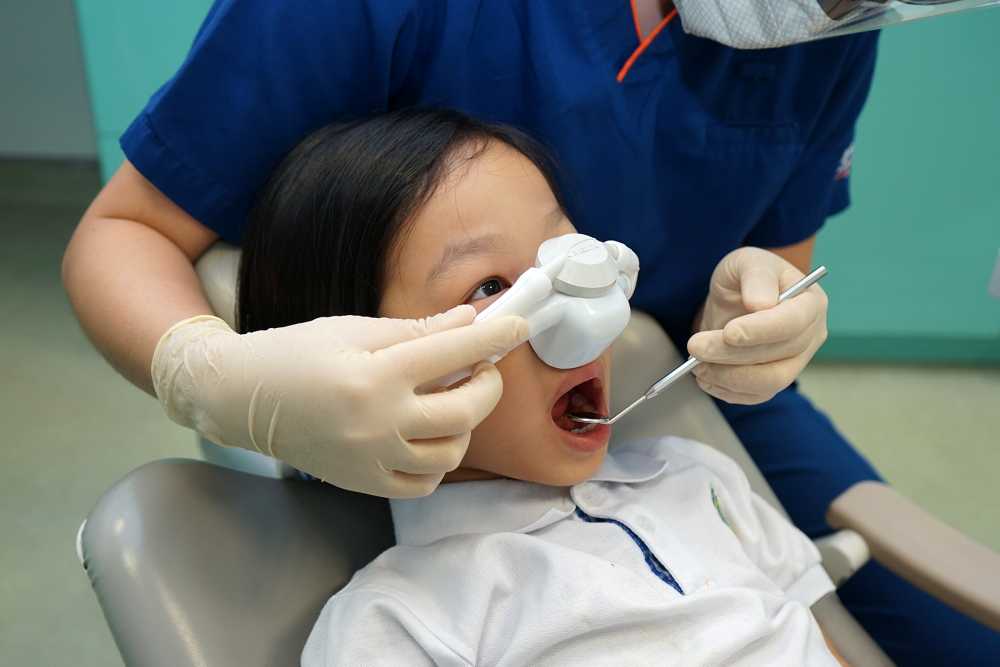National Dental Centre Singapore (NDCS) has recently launched a nitrous oxide sedation service. It is specifically designed to alleviate dental anxiety in paediatric patients.
Since its inception in June this year, this service has been instrumental in helping young patients relax during dental procedures. Nitrous oxide, commonly known as “Laughing Gas”, is a significant step forward in managing dental treatment anxiety, especially among children.
Safer and Faster Alternative to General Anaesthesia
Nitrous oxide sedation is a lower-risk alternative to General Anaesthesia (GA), particularly for complex dental treatments. It offers mild sedation, making it safer for the respiratory system and blood flow. Another advantage is its rapid elimination from the body, allowing for a quicker recovery.
How It Works
The process involves the inhalation of nitrous oxide mixed with oxygen through a rubber mask placed over the nose. This mild sedation helps the patient remain relaxed yet conscious during the procedure. Post-sedation, patients receive 100% oxygen for five minutes to prevent nausea or headaches, ensuring a comfortable recovery.
Positive Feedback from Parents
Parents like Mdm Norhayati Mahat, whose 10-year-old daughter underwent the treatment, have praised the service. She noted that her daughter felt comfortable and less nervous and was even willing to undergo the procedure again. Such feedback highlights the effectiveness of nitrous oxide in creating a positive dental experience for children.
Expert Opinions
Dr Bien Lai, Senior Consultant and Head of Paediatric Dentistry at NDCS, observed that children receiving this sedation were more relaxed and cooperative. “Our paediatric patients who received nitrous oxide sedation for dental treatment have been observed to be more relaxed, and better able to accept treatment and sit through the dental procedure. Nitrous oxide is an effective adjunct to our repertoire of behaviour management techniques.”,” he commented.
Safety and Side Effects
While the sedation level is minimal and generally safe, some common side effects like vomiting, nausea, dizziness, and light-headedness may occur. To date, 24 paediatric patients have benefitted from this service.
Expansion to Adult Patients
Looking ahead, NDCS plans to extend this service to adult patients at its Geriatric Special Care Dentistry Clinic (GSDC) in early 2024. Dr Yang Jingrong, Head and Consultant of GSDC, anticipates that this will help manage adults with severe dental anxiety, particularly those needing medical co-management. Dr Yang stated, “This will expand the profile of patients who can be adequately managed at the clinic, particularly adults with high levels of dental anxiety that require medical co-management.”
Other Uses of Nitrous Oxide in Medical Care
Apart from its well-known use in anaesthesia and dentistry, nitrous oxide finds its place in various other medical contexts. In childbirth, it serves as an effective pain management tool, offering a less invasive alternative to epidurals. Its application extends into emergency medicine, where it’s utilised for acute pain relief, such as in setting fractures or managing wound pain. In pediatric medicine, nitrous oxide aids in calming children during minor surgeries or diagnostic tests. Additionally, it’s employed for sedation in diagnostic imaging procedures like MRI or CT scans, which is particularly beneficial for patients with anxiety or those requiring stillness. There’s also emerging research into its potential use in treating certain mental health conditions, like treatment-resistant depression, exploring its mood-regulating effects.
Future Research and Development
NDCS is also planning a study to assess patient outcomes from the nitrous oxide sedation service, underlining its commitment to evidence-based care. This initiative not only enhances dental care for children but also paves the way for broader applications in adult dentistry, offering a more comfortable experience for patients with dental anxiety.
Photo Credit: NDCS

